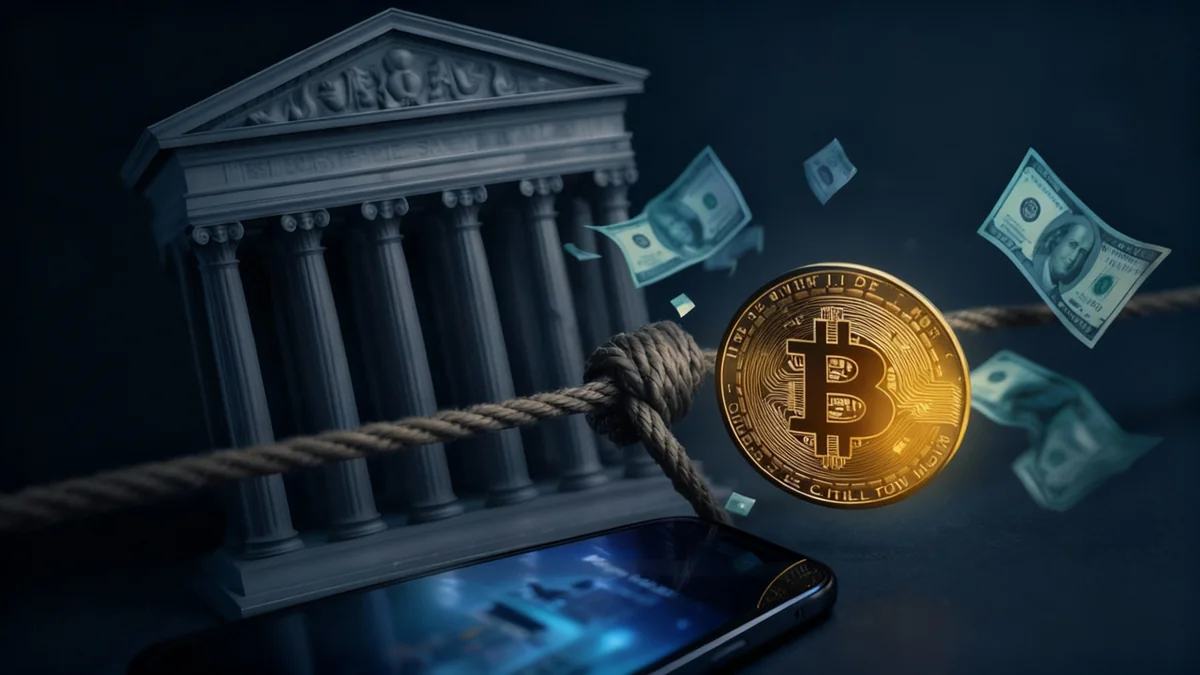Shares of the artificial intelligence lending platform Upstart Holdings (NASDAQ: UPST) experienced a significant downturn in September, falling 31% as investor concerns mounted over potential increases in loan delinquency rates. The decline was driven by wider economic anxieties and specific events in the auto industry that raised questions about credit market stability.
Despite a lack of direct negative news from the company itself, market sentiment shifted due to third-party data and the bankruptcies of two auto-related companies. This prompted a sell-off as investors grew cautious about the performance of loans originated through Upstart's platform, particularly those extended to lower-income consumers.
Key Takeaways
- Upstart's stock value decreased by 31% during the month of September.
- The decline was linked to investor fears about rising loan delinquencies and a weakening economy.
- Bankruptcies in the auto sector, including Tricolor Holdings, triggered concerns about subprime lending.
- An analyst's mistaken report on delinquency rates temporarily accelerated the stock's fall before being corrected.
- The company's previous strong quarterly results and guidance stood in contrast to the market's negative sentiment.
A Difficult Month for Upstart Shares
According to data from S&P Global Market Intelligence, Upstart's stock price concluded September with a 31% loss. The majority of this decline occurred in the second half of the month, indicating a rapid shift in investor confidence. This trend was not isolated to Upstart, as other financial technology (fintech) companies, especially those in the "buy now, pay later" (BNPL) space, also faced headwinds from rising credit risk perceptions.
Investors appear to be sensitive to any signs of economic trouble, potentially recalling the stock's sharp crash in 2022. That period was primarily driven by rising interest rates, which slowed growth and erased profits. While the current economic environment is different, the fear of a similar downturn in business performance remains a key factor for shareholders.
Broader Fintech Sector Under Pressure
The concerns affecting Upstart are part of a wider trend impacting the fintech industry. As signs of a slowing labor market and weakening economy emerge, companies that provide credit or facilitate loans are watched closely. Investors are particularly focused on default rates, as an increase can significantly impact profitability and the willingness of lending partners to fund loans.
Auto Sector Bankruptcies Fuel Market Anxiety
A significant trigger for Upstart's stock decline came on September 10, when the shares fell 9.4% on high trading volume. This drop coincided with news of the bankruptcy of Tricolor Holdings, a used-car dealership that specialized in lending to consumers with no credit history. While Tricolor is not directly connected to Upstart, its failure sent a ripple of concern through the credit markets.
The bankruptcy highlighted potential vulnerabilities in the subprime lending market, a segment that overlaps with Upstart's target demographic. Investors interpreted this event as a possible indicator of future trouble for loans made to borrowers with lower credit scores. Toward the end of the month, these fears were compounded when First Brands, an auto-parts manufacturer, also filed for bankruptcy, further unsettling investors exposed to the auto loan ecosystem.
Market Reaction to External News
On September 10, the day of the Tricolor Holdings bankruptcy news, Upstart's stock dropped 9.4%. Later in the month, an inaccurate analyst report on September 29 caused an 8% single-day decline before a correction was issued.
Analyst Report Causes Temporary Turmoil
The stock's downward trend was amplified late in the month by a research note from an analyst at BTIG. On September 29, the firm issued a report expressing surprise at what it described as a significant increase in delinquencies within Upstart's asset-backed securitizations. The news caused an immediate negative reaction, and Upstart's stock fell 8% that day.
However, the information was quickly re-evaluated. Just two days later, the analyst issued a correction, retracting the earlier statement about the delinquency spike. This correction provided some relief, and Upstart's stock gained 2.6% at the beginning of October. The incident highlighted how sensitive the market has become to any data related to the company's loan performance.
The analyst's correction of their figure essentially retracted the earlier comment, demonstrating the volatility caused by third-party market analysis.
Looking Ahead for Upstart
At present, the basis for the September sell-off appears to be rooted in market fears rather than confirmed data from Upstart itself. The company has not issued any statements indicating a material change in its business operations or loan performance. During a presentation at a Goldman Sachs conference on September 9, management did not signal any new concerns regarding credit quality or delinquencies.
The company's second-quarter results were strong, and its guidance for the third quarter was also positive. If Upstart's business performance remained resilient through the third quarter, the recent stock decline may be viewed as an overreaction. Investors will be closely watching for the company's next earnings report for direct information on how the changing economic landscape is impacting its loan portfolio.
The key question is whether the external economic pressures have translated into actual performance issues for Upstart. Without direct confirmation from the company, the stock's future direction will likely depend on its upcoming financial results and commentary on credit trends.





